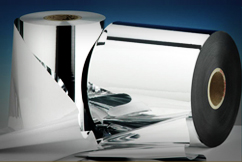Textile
The clothing and textiles sector is a significant part of the world's economy. Setup and switch-over times and costs have traditionally led to large batch manufacture of clothing with long lead times – fashion shows for summer clothing are held in the autumn to allow six months for manufacture. However, this pattern is rapidly changing – with customer demand for so called "fast fashion" where stores change the designs on show every few weeks, rather than twice per year. This trend is now more noticeable in the clothing sector with the growth of 'full package' companies that are able to supply quick time delivery orders to big retailers.
There is also a trend towards investing in increased capacity and introducing "new industrial robotics" – substituting expensive labour with novel technologies. We offer specialised Engineering Plastic products for Textile machinery parts such as Bobbin, Clamp & Apron gauge.
Another trend gaining pace is use of synthetic fibres, wherein Polyester fabric dominates the space. It is made of polyester (PET) fibers/filament yarns and highly suitable for fashion apparel, home furnishings, performance wear, automotive upholstery and sewing threads. Being robust and cost effective alternative to typical natural fiber, it emerges out as a preferred material for clothes manufacturing in textile industry. It is the most versatile raw material for textile and industrial applications.
At Ester, we provide specialty PET grades for textile applications that ensure outstanding durability to clothing manufacturers. Fabric made with these resins is not only easy to process and dry but also resistant to wrinkles, shrinking, and fire.
We endeavor to meet the evolving demand of textile industry by putting more focus on research & development of polymers to enable them meet the performance demands of new market that offer higher profit margins than conventional markets. Such as easy dyeability, stain resistance, deep, dark and good dyeability etc.
By using our PET grades, textile manufacturers can easily achieve low pillage, outstanding dyeability, flame retardancy, high tenacity, and monofilament properties. In this way, end users get high quality fabric that is simply superb in all walks of life.




